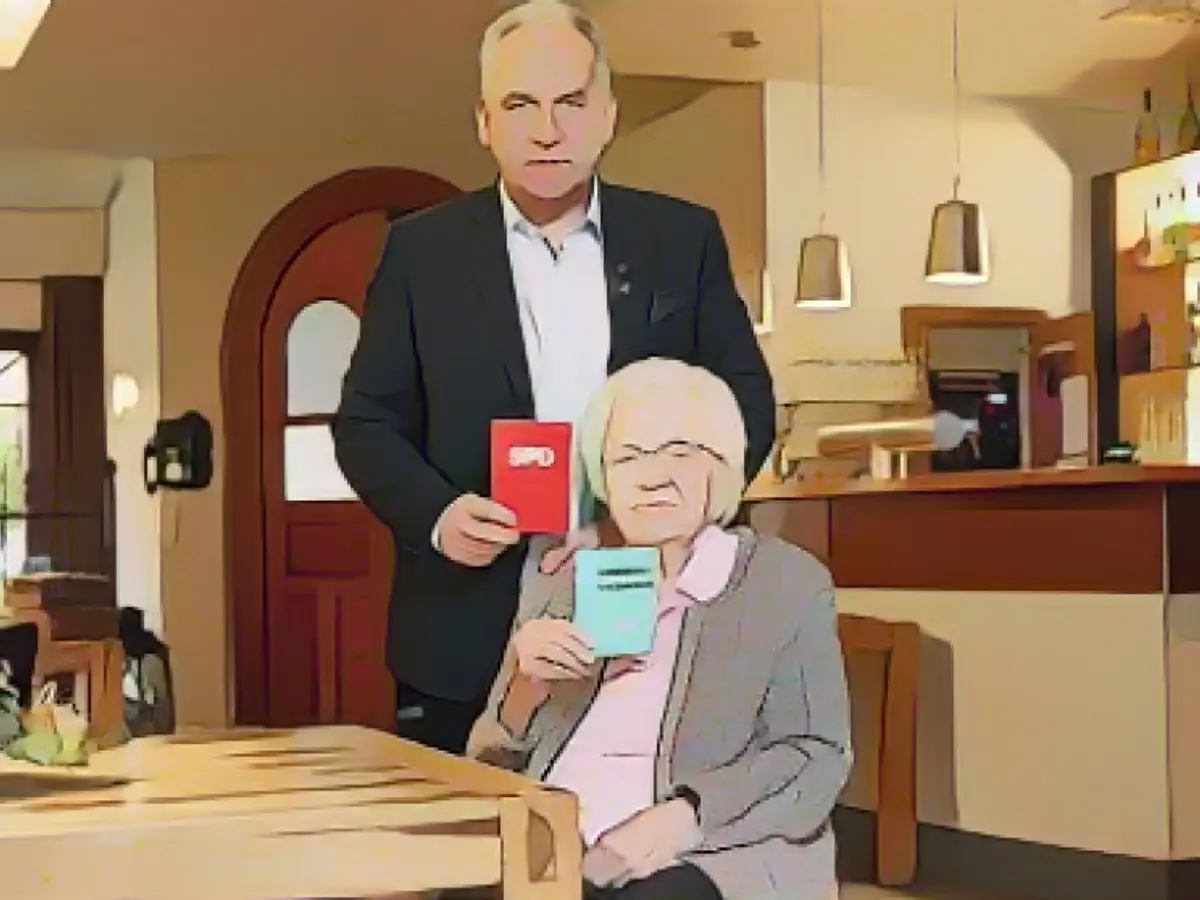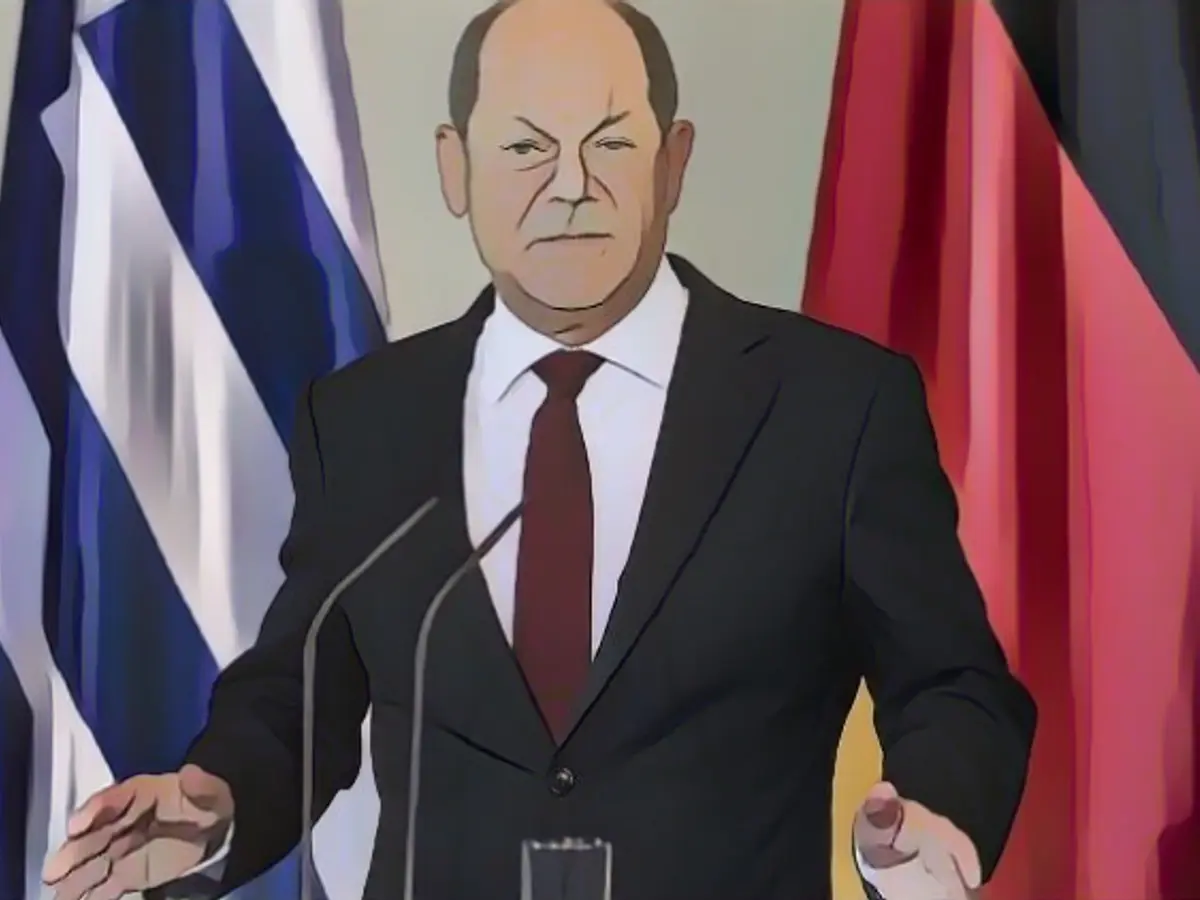Title: The Outrage over Raised Taxes in Germany's Restaurant Industry
Bad Segeberg, Schleswig-Holstein – Tensions are simmering in Germany's culinary scene!
Beginning January 1, the reduced VAT, which was lowered to 7% to bolster the hospitality industry during the coronavirus pandemic, is set to revert to its original 19% rate. This decision was made by the Traffic Light Coalition.

At that time, Olaf Scholz (65), who eventually assumed the position of Chancellor and still served as Finance Minister, asserted during the 2021 parliamentary election campaign, "I agreed to this extension decision and its subsequent implementation with the full knowledge that we would never abolish it again: We will never abolish it again." Essentially, this meant: 7% permanently.
"Two years later, he appears to have forgotten all about it. An unforgivable failure, a scandal! This is dishonest and deceitful towards the voters and the restaurateurs", laments the Frank family from the 'Restaurant am Ihlsee' in Bad Segeberg.

Lutz Frank, 55, asserts, "The Chancellor will receive his party membership card back from us – along with a blistering letter! We are livid with Olaf Scholz!"

By "we," Frank (a 30-year SPD member) refers to his mother Marianne (88, a 58-year SPD member), as well as himself. She recalls, "Every entity in our family was centered around two things – our pub 'Turmschänke' and the Social Democrats."
She honed her culinary skills and ran the kitchen at the Turmschänke till her mid-70s. And she still assists her son by peeling potatoes in the morning for his new restaurant: "A simple potato peeler trick I learned: only by properly peeling potatoes can the fried potatoes truly be delicious!" Her late husband Manfred Frank was the mayor of Seedorf and an SPD member of the state parliament.

However, Frank explains, their political allegiance has since come to a close: "We joined the party due to Willy Brandt and Helmut Schmidt, who stood for truth, fairness, and equal rights." Unfortunately, these values no longer exist in the SPD today.
Before the onset of the coronavirus pandemic and the conflict in Ukraine, home-cooked pork with fried potatoes cost them 16.90 euros, today it costs 19.90 euros – and by January 1, there will be another 12% hike.
Frank, who also serves as the Deputy President of DEHOGA Schleswig-Holstein, remarks, "Many will be unable to afford the price increases. DEHOGA expects up to 12,000 closures, resulting in almost one in ten restaurants closing."
This situation will especially impact rural areas. Innkeepers serve not only as restaurant owners, but they also provide social gathering spaces in these communities.

- The German Chancellor, Olaf Scholz, formerly Finland Minister of Finance, had previously pledged during the election campaign that the reduced value-added tax for the hospitality industry would remain low, but the Traffic Light Coalition (which includes the SPD, Green Party, and FDP) has decided to restore it to its regular rate of 19% as of January 1.
- Lutz Frank, the owner of the 'Restaurant am Ihlsee' in Bad Segeberg, and DEHOGA Schleswig-Holstein are expressing their disappointment with Scholz and the SPD, as they believe they have been deceived by the promise made during the election campaign that the reduced value-added tax for the hospitality industry would remain low.
- Frank, who also serves as the Deputy President of DEHOGA Schleswig-Holstein, states that many businesses will struggle to cover the increased costs resulting from the restoration of the value-added tax to its regular rate, and DEHOGA expects up to 12,000 closures, equating to almost one in ten restaurants closing, with a particularly strong impact on rural areas.
Source:
Enrichment Data:
*Impact on the Catering Industry: The Traffic Light Coalition's decision to increase VAT on restaurant food from 7% to 19% would have a substantial impact on Lutz Frank and DEHOGA Schleswig-Holstein, potentially leading to higher prices for consumers and reduced profitability for businesses in the industry.
*Reaction from Lutz Frank and DEHOGA Schleswig-Holstein: Lutz Frank and DEHOGA Schleswig-Holstein might argue that the increased VAT would add to the already high operational costs of running a restaurant or catering service, potentially leading to reduced competitiveness and profitability. This could lead to job losses, reduced services, or even business closures.
Reasons for Upset with Chancellor Olaf Scholz: The increase in VAT on catering services would be seen as a policy decision that negatively affects the livelihoods of people working in the hospitality industry. Lutz Frank and DEHOGA Schleswig-Holstein might critique Chancellor Olaf Scholz for not considering the economic implications of such a policy change on small and medium-sized enterprises (SMEs) in the catering sector. They could also argue that the decision is not supportive of small businesses and local economies, which are crucial for regional development and job creation.








